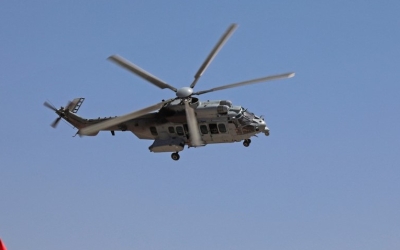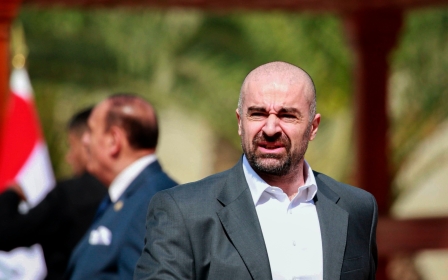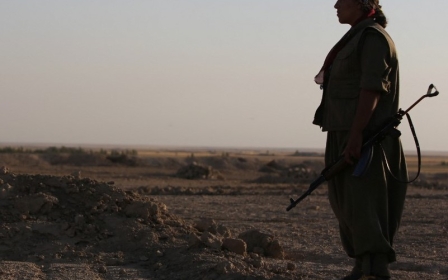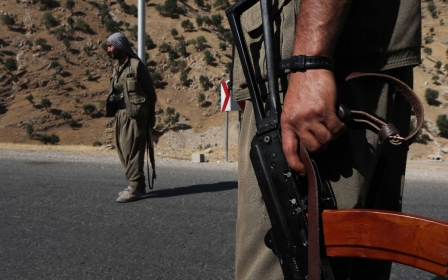Turkey 'targets SDF commander' in Iraq strike for second time in months
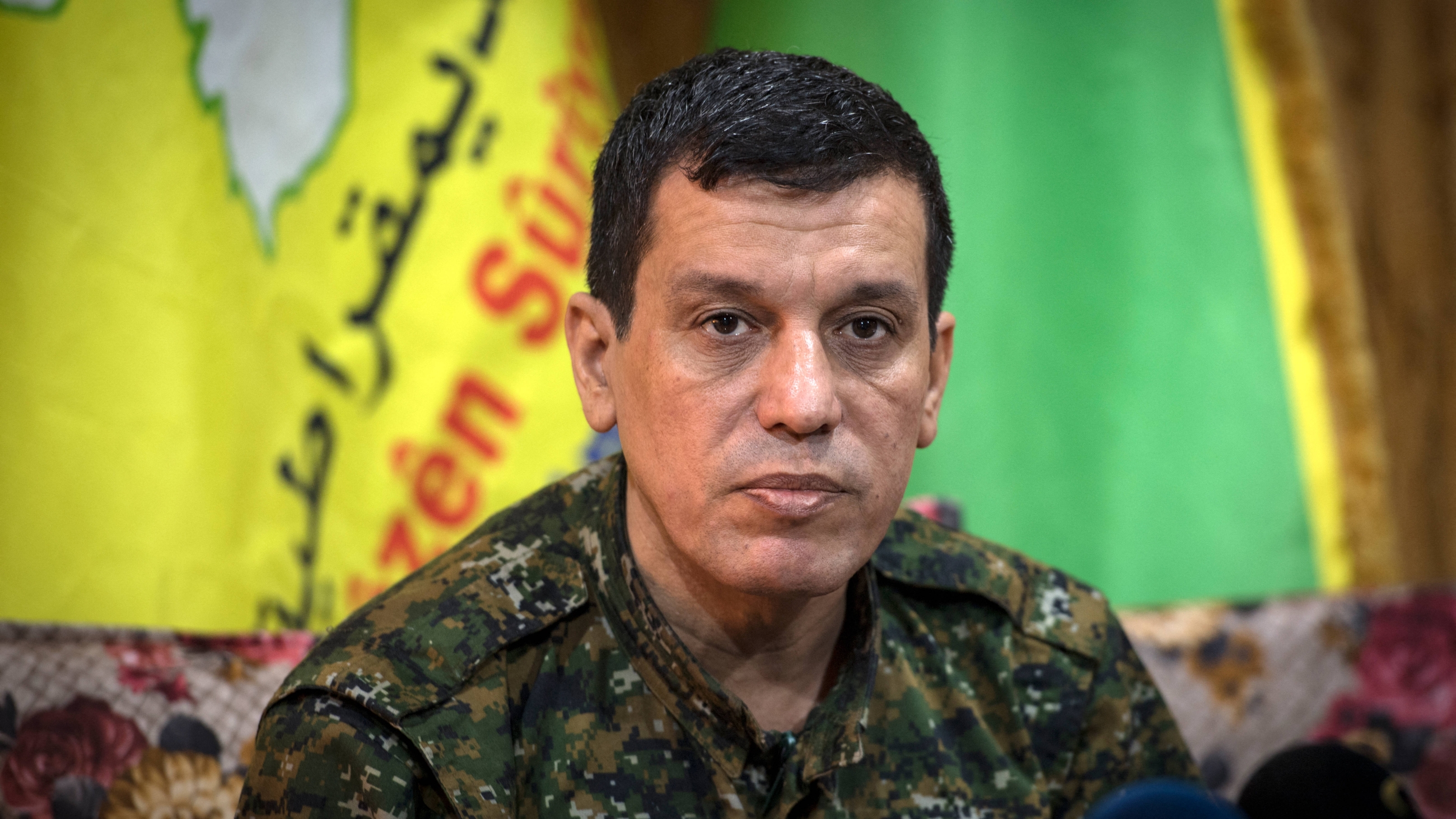
A senior Kurdish military leader was reportedly targeted in a drone attack on Friday in Iraq's Sulaymaniyah, which Iraqi and Kurdish officials blamed on Turkey.
The Kurdistan Regional Government (KRG) in northern Iraq said that an explosion occurred near the Sulaymaniyah airport in the afternoon but left no casualties or damage.
The target was a convoy that included Mazloum Abdi, the commander of the Kurdish-led Syrian Democratic Forces (SDF), and three US military personnel, Kurdish activists and US officials have said.
There were no casualties in the strike, which was confirmed by a spokesperson for US Central Command, according to the Wall Street Journal.
The KRG and the SDF denied the reports that Abdi was targeted.
New MEE newsletter: Jerusalem Dispatch
Sign up to get the latest insights and analysis on Israel-Palestine, alongside Turkey Unpacked and other MEE newsletters
Turkey has not commented on the strike.
Middle East Eye asked Turkish authorities for comment but did not receive a response at the time of publication.
Abdi on Saturday blamed Ankara for the attack but stopped short of confirming if he was in the targeted convoy.
Iraqi President Abdel Latif Rashid called on Turkey to apologise for the shelling and said in a statement that Ankara had no legal justification to "continue its approach of intimidating civilians under the pretext that forces hostile to it are present on Iraqi soil".
The city of Sulaymaniyah has come under the spotlight in recent weeks after the discovery of an apparent air corridor between Iraq and Syria allegedly carrying senior fighters of the Kurdistan Workers' Party (PKK) at the behest of the Patriotic Union of Kurdistan (PUK).
The PUK is the second largest party in the semi-autonomous region and the dominant force in Sulaymaniyah, a city where Turkey has long carried out operations against PKK figures.
The PKK, a Kurdish separatist group, has been in conflict with the Turkish state since the 1980s, involving violence that has killed tens of thousands of people. It's designated as a terrorist group by Turkey, the US and the EU.
The SDF, a US-backed militia spearheaded by PKK-linked groups, said last month that nine of its members died in the Eurocopter AS350 helicopter crash en route to Sulaymaniyah.
The Turkish foreign ministry said last week that Turkish Airlines flights to Sulaymaniyah would be suspended until 3 July. It linked the decision to "the intensification" of the PKK's activities in Sulaymaniyah and its "penetration" of the airport, "thus threatening flight security".
'Hunt' for Abdi
The Friday drone attack was not the first to target Abdi.
The Turkish military launched a series of drone, artillery and air strikes in November against the SDF in northern Syria in the aftermath of the deadly Istanbul bombing.
One of the attacks targeted Abdi as he came out of a meeting with US military advisers, which was held at an SDF base in Hasakah province.
The US Central Command said at the time that there was "a risk to US troops and personnel" during the attack but did not mention the meeting.
Several members of Abdi's protection team were killed in the attack.
Turkish authorities, however, have not publicly confirmed that they were responsible for the Hasakah assassination attempt.
Turkish sources familiar with the strike told MEE that it took place during a drone reconnaissance flight. A group of SDF fighters were spotted and attacked.
The sources declined to comment on whether Abdi was directly targeted.
According to Turkish sources involved in the fight against the PKK and YPG, Ankara believes closer ties between the US-backed SDF and the PKK have become more evident amid the fragile security situation along the Syrian-Iraqi border.
Turkish sources said that increased meetings between Abdi, the PUK and the US were under constant surveillance, likening the situation to a "hunt".
Middle East Eye delivers independent and unrivalled coverage and analysis of the Middle East, North Africa and beyond. To learn more about republishing this content and the associated fees, please fill out this form. More about MEE can be found here.


